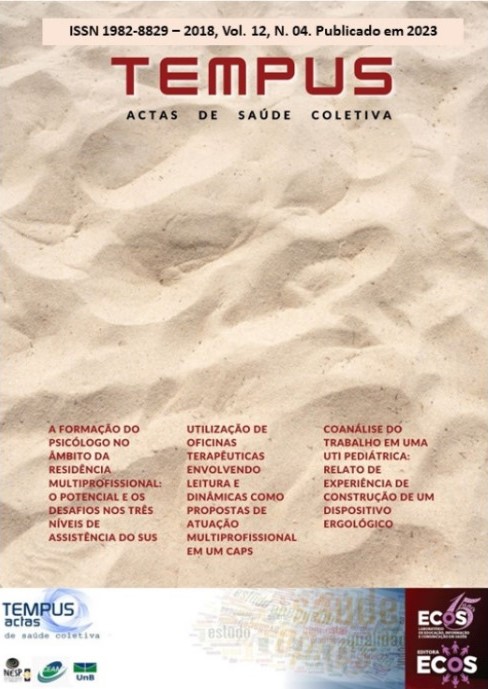Resumo
Este artigo constitui uma reflexão sobre a literatura no Medline sobre as motivações da conduta desonesta em pesquisa. Após referir os tipos de condutas desonestas relatadas, concluiu-se a necessidade de treinamento em integridade científica em instituições que realizam pesquisas e possuem mecanismos institucionais para prevenir condutas desonestas. Para reforçar a formação, propõe-se a implementação de formas de reconhecimento e incentivo que desencorajam a competição entre investigadores e promovam a ética coletiva.
Referências
Errami M, Garner H. A tale of two citations. Nature 2008. Jan;451(7177):397-399.
Motallebifard, A., Navehebrahim, A., Mohabbat, H., Sadin, A. (2013), Diagnosis and scientific framework development of peer review: Aqualitative approach. Journalism Library Science and Information Science and Information Technology2013; 22(3), 73-84
A consensus statement on research misconduct in the UK. BMJ 2012;344:e1111. http://publicationethics.org/files/A_consensus_statement_on_research_misconduct_in_the_UK.pdf. Accessed Dec 2017.
Code of Federal Regulations 42, subsection 93.103.
Sponholz, G. Teaching scientific integrity and research ethics.Forensic Science International2000; 113(1), 511-514.
DuBois JM, Anderson EE, Chibnall J, Carroll K, Gibb T, Ogbuka C, Rubbelke T. Understanding research misconduct: a comparative analysis of 120 cases of professional wrongdoing. Account Res. 2013;20(5-6):320-38
Marcovitch H. Misconduct by researchers and authors. Gac Sanit. 2007 Nov-Dec;21(6):492-9.
Responsible Science, Volume I: Ensuring the Integrity of the Research Process. National Academy of Sciences, National Academy of Engineering, Institute of Medicine (SEM, 1992)
Von Elm E. Research integrity collaboration and research needed, the Lancet 2007; 370:1403-1404.
Martin BC, Anderson MS, Crain AL & de Vries R.Journal of Empirical Research in Human Research Ethics 2006; 1: 51-66.
ORI, Gallup Organization Final Report: Observing and Reporting Suspected Misconduct in Biomedical Research(2008).
Antes A, Brown P, Murphy S, Waples E, Mumford M, Connelly S, &Devenport L. Personality and Ethical Decision-Making in Research: The Role of Perceptions of Self and Others, Journal of Empirical Research in Human Research Ethics2007; 2(4):15–34.
Miller F, Rosenstein D,DeFenzo E. Professional Integrity in Clinical Research, JAMA 1998;280:1449-1454.
Stossel T. Regulating Academic-Industrial Relationship-Solving Problems of Stifling Progress?New England Journal of Medicine2005; 353(10):1060-1065.
Mark, S., Davis, M.S., Morris, M., Diaz, S. Causal factors implicated in research misconduct: Evidence from ORI case files. Science and Engineering Ethics 2007; 13, 395-414.
Morrison, R. S. Disreputable science: Definition and detection. Journal of Advanced Nursing 1990; 15(8), 911–913.
Goodstein DL. On Fact and Fraud: Cautionary Tales from the Front Lines of Science. New Jersey: Princeton University Press, 2010.
Office of Research Integrity.Available at http://ori.hhs.gov/content/handbooks-and-guidelines.
G. True, L.B. Alexander, et al.Misbehaviors of front-line research personnel and the integrity of community-based research. J. Empir. Res. Hum. Res. Ethics JERHRE 2011; 6 (2), pp. 3-12
Mark, S., Davis, M.S., Morris, M., Diaz, S. Causal factors implicated in research misconduct: Evidence from ORI case files. Science and Engineering Ethics 2007;13, 395-414.
Davis, M., Riske-Morris, M., & Diaz, S. Causal Factors Implicated in Research Misconduct: Evidence from ORI Case Files Science and Engineering Ethics 2007; 13 (4), 395-414.
Antes A, Brown P, Murphy S, Waples E, Mumford M, Connelly S, &Devenport L. Personality and Ethical Decision-Making in Research: The Role of Perceptions of Self and Others, Journal of Empirical Research in Human Research Ethics2007; 2(4):15–34.
Amiri AR, Kanesalingam K, Cro S, Casey AT. Does source of funding and conflict of interest influence the outcome and quality of spinal research? Spine J 2014. Feb;14(2):308-314.
Bailey CS, Fehlings MG, Rampersaud YR, Hall H, Wai EK, Fisher CG. Industry and evidence-based medicine: Believable or conflicted? A systematic review of the surgical literature. Can J Surg 2011. Oct;54(5):321-326.
DeYoung K and Nelson D. Latin America ripe for Clinical Trialas and Fraud.The Body HuntersWashington Post December, 2000; Pg. A01
Goodstein DL. On Fact and Fraud: Cautionary Tales from the Front Lines of Science. New Jersey: Princeton University Press, 2010.
Kingori P, Gerrets R. Morals, morale and motivations in data fabrication: Medical research fieldworkers views and practices in two Sub-Saharan African contexts. SocSci Med 2016 Oct; 166:150-159.
Scott JC. Weapons of the Weak: Everyday Forms of Peasant Resistance, Yale University Press, New Haven, 1985.
Meyer, W. M. & Bernier, Jr., G. M. Potential cultural factors in scientific misconduct allegations. In N. H. Steneck& M. D. Scheetz (Eds.), Investigating research integrity: Proceedings of the first ORI research conference on research integrity 2002,Rockville, MD: Office of Research Integrity.
Vastag B. Cancer Fraud Case Stuns Research Community, Prompts Reflection on Peer Review Process, Journal of the National Cancer Institute 2006; 98(6):373-376.
Mumford, M. D., & Helton, W. B. Organizational influences on scientific integrity. In N. H. Steneck& M. D. Scheetz (Eds.), Investigating research integrity: Proceedings of the first ORI research conference on research integrity2002, Rockville, MD: Office of Research Integrity.
Lock, S. Fraud in medical research. Journal of the Royal College of Physicians of London 1997; 31(1), 90–94.
A Tempus garante critérios rigorosos, por meio de avaliação sistemática. Os autores se responsabilizam pela veracidade e ineditismo do trabalho cabendo a eles a cessão de direitos de publicação à revista. A confiabilidade dos conteúdos e a marca própria de apresentação tem como objetivo uma comunicação personalizada, adaptada aos padrões da revista, na medida em que adota critérios de excelência exigidos por seus usuários e especialistas, considerando os rigores da comunicação científica. Os autores devem especificar sua contribuição individual na concepção, delineamento, execução do trabalho, análise ou interpretação dos dados, redação e aprovação final do manuscrito. Incluir Fontes de financiamento e de apoio logístico das pesquisas. Ao final da submissão do artigo, os autores devem enviar uma declaração de cessão de direitos de publicação à Revista TEMPUS , assinada e no formato PDF (Portable Document Format ): Modelo da declaração de cessão de direitos.
